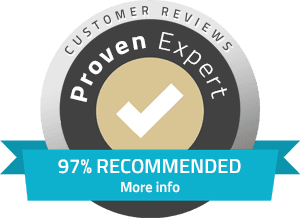A successful digital marketing strategist possesses a blend of skills, knowledge, and qualities that enable them to develop, implement, and optimize effective marketing campaigns. Here are the key components that define a successful digital marketing strategist:
1. Analytical Skills
- Data Analysis: Proficiency in analyzing data from various sources (e.g., Google Analytics, social media insights) to identify trends, measure performance, and inform decision-making.
- Key Performance Indicators (KPIs): Ability to define, track, and interpret KPIs to evaluate the success of marketing efforts and adjust strategies accordingly.
2. Technical Skills
- SEO Knowledge: Understanding of search engine optimization techniques to improve organic search rankings and drive traffic.
- PPC Campaign Management: Expertise in managing pay-per-click campaigns on platforms like Google Ads and social media ads.
- Marketing Automation: Familiarity with tools like HubSpot, Marketo, or Mailchimp to automate and optimize marketing tasks.
3. Content Creation
- Content Strategy: Ability to develop and execute a content strategy that aligns with business goals and resonates with the target audience.
- Copywriting: Strong writing skills to create compelling and persuasive content for various digital platforms.
- Visual Content: Knowledge of basic graphic design and video production to create engaging visual content.
4. Social Media Expertise
- Platform Proficiency: Deep understanding of major social media platforms (Facebook, Instagram, Twitter, LinkedIn, TikTok) and their advertising options.
- Engagement Tactics: Ability to engage with audiences, manage communities, and build brand presence on social media.
5. Strategic Thinking
- Goal Setting: Capability to set clear, measurable marketing goals that align with overall business objectives.
- Campaign Planning: Skill in planning and executing integrated marketing campaigns across multiple channels.
- Competitor Analysis: Ability to analyze competitors’ strategies to identify opportunities and threats.
6. Customer-Centric Approach
- Audience Understanding: Deep understanding of target audience demographics, psychographics, and behavior.
- Personalization: Ability to create personalized marketing experiences that cater to the specific needs and preferences of different customer segments.
7. Adaptability and Flexibility
- Staying Updated: Keeping up-to-date with the latest digital marketing trends, tools, and best practices.
- Agility: Ability to quickly adapt to changes in the market, consumer behavior, and technology.
8. Communication and Collaboration
- Interpersonal Skills: Strong communication skills to effectively collaborate with team members, stakeholders, and clients.
- Project Management: Ability to manage projects, coordinate tasks, and ensure timely delivery of marketing initiatives.
9. Creativity
- Innovative Thinking: Ability to think creatively and come up with unique marketing ideas and solutions.
- Problem-Solving: Skill in solving marketing challenges with innovative and effective strategies.
10. Technical Tools Proficiency
- CRM Systems: Knowledge of customer relationship management systems like Salesforce or HubSpot.
- Analytics Tools: Proficiency in using tools like Google Analytics, SEMrush, Ahrefs, and other analytics platforms.
- Content Management Systems (CMS): Familiarity with CMS platforms like WordPress, Drupal, or Joomla for website management.
11. Ethical and Compliant Practices
- Compliance: Understanding of legal and regulatory requirements related to digital marketing, such as GDPR, CCPA, and CAN-SPAM.
- Ethical Marketing: Commitment to ethical marketing practices that build trust and credibility with the audience.
12. Result-Oriented
- ROI Focus: Emphasis on achieving a high return on investment for marketing activities.
- Performance Optimization: Continuous optimization of campaigns to improve performance and achieve better results.



